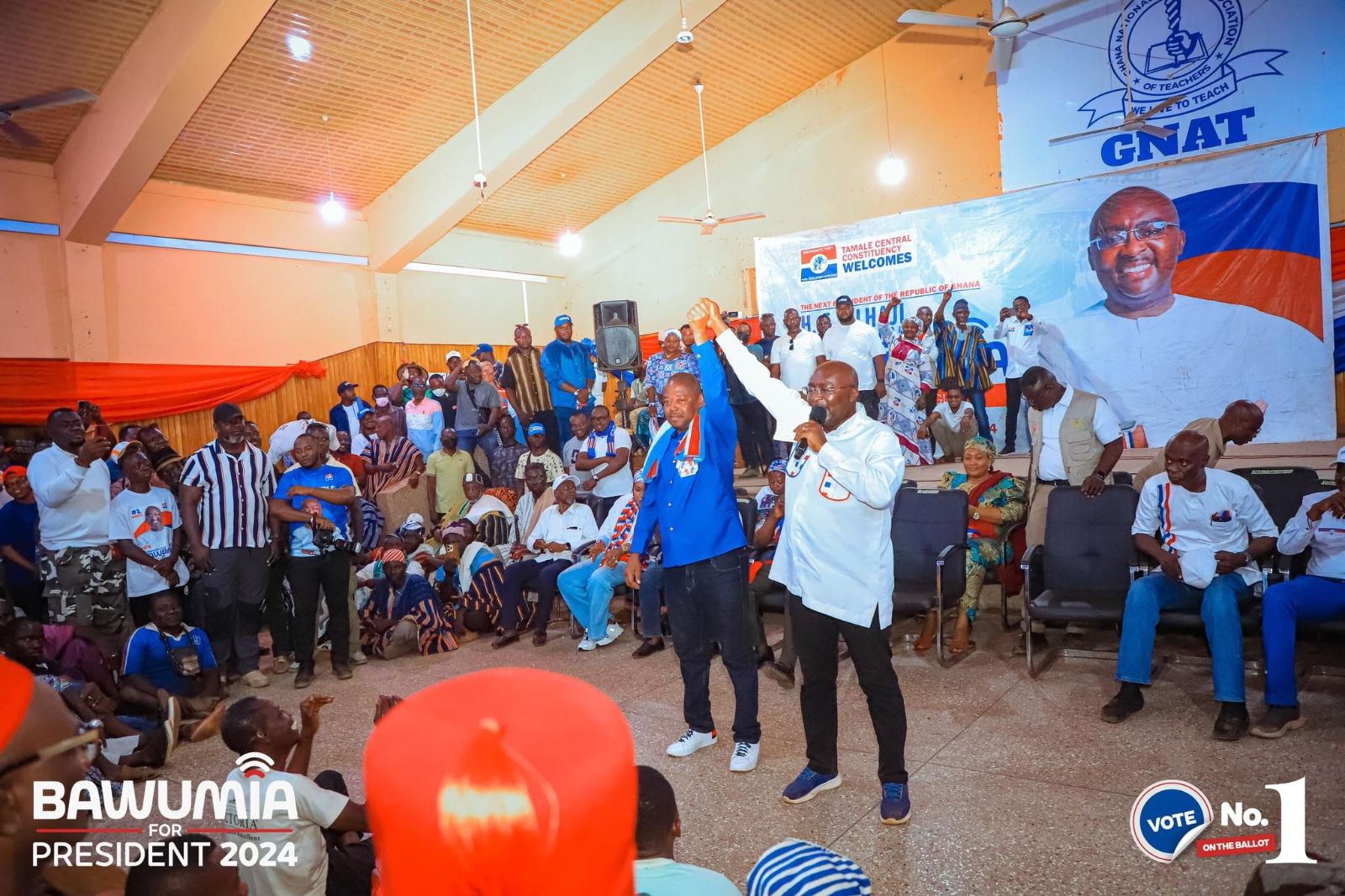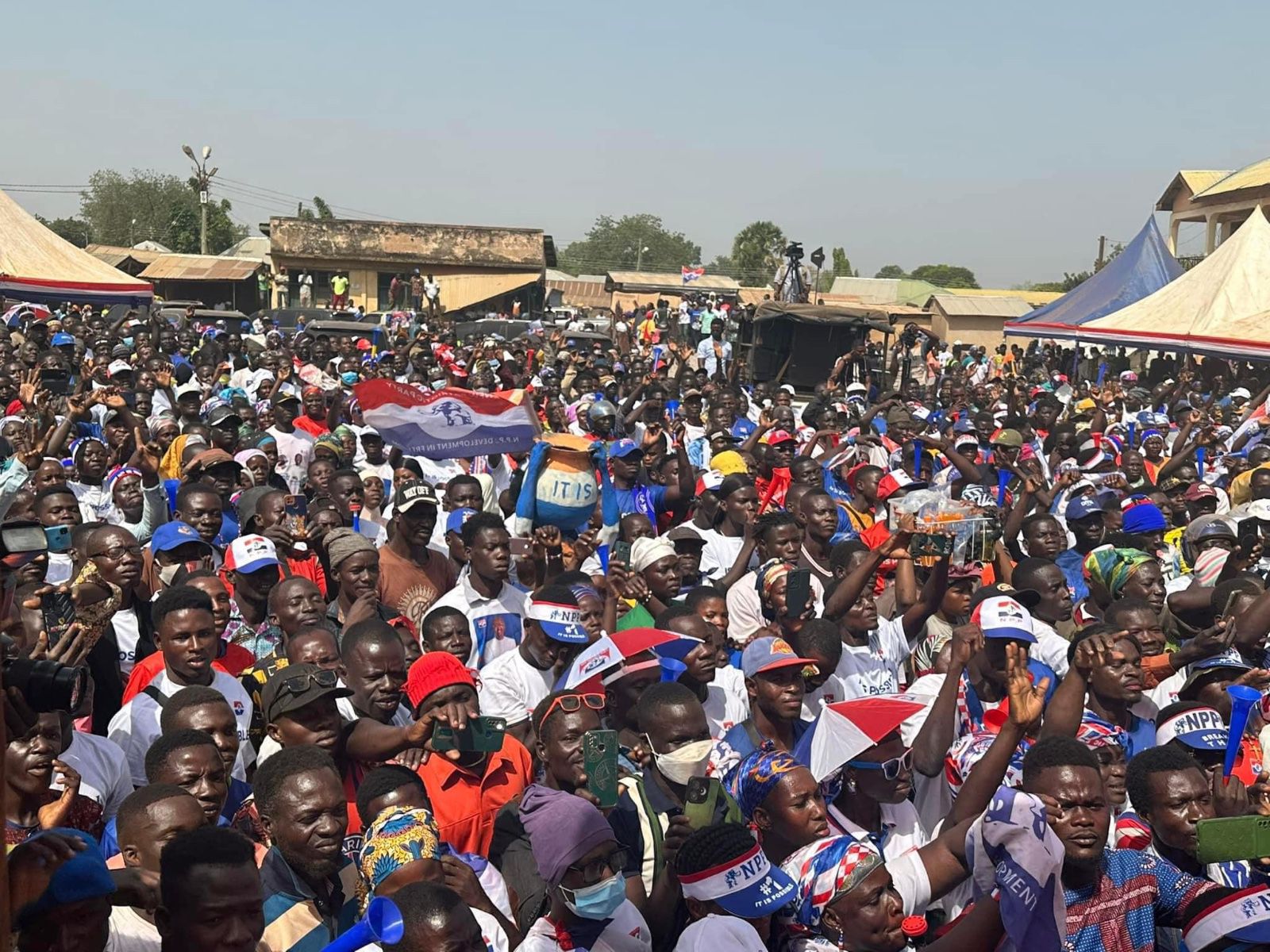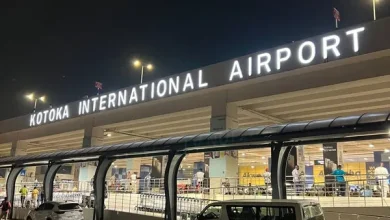Election 2024: We Will Beat NDC Squarely – Bawumia

NPP presidential candidate, Dr Mahamadu Bawumia, has expressed the strongest conviction yet of victory in the December 7 elections. His only issue is the gap between him and his main contender, John Mahama.
Addressing a massive crowd of NPP supporters in Saboba in the Northern Region, Dr Bawumia said, “Make no mistake about it. By the grace of God, Insha Allah, we are winning this election”. He added: “The only issue is the gap, how big the gap we are going to give our opponents. I want a big gap, I want all of you to come out. We want to beat them well well.”
Wasteful Mahama
Describing the election as a straight contest between him and John Mahama, the NPP presidential candidate said the people are faced with the choices of progress and failure.
He said Mahama was a complete disaster in his term as President and does not deserve a comeback.
“In this election, there are two of us, myself and the former President. During his term, all the money, hundreds of billions that were given to him to develop the north, he told us he was rearing guinea fowls under SADA. We have not seen one SADA project in the five northern regions,” Dr Bawumia fired.
Dr Bawumia proceeded to ask the charged crowd, “Is there a SADA project in Saboba, have you seen one SADA project in Saboba?” The crowd responded, “no”.
He stated, “We asked him (Mahama) where are the guinea fowls and he said they have flown to Burkina Faso and today he says he wants to come back.”
Again, Dr Bawumia threw the question to the gathering, “Do you want him to come, back?” The response once again was, “no”.












